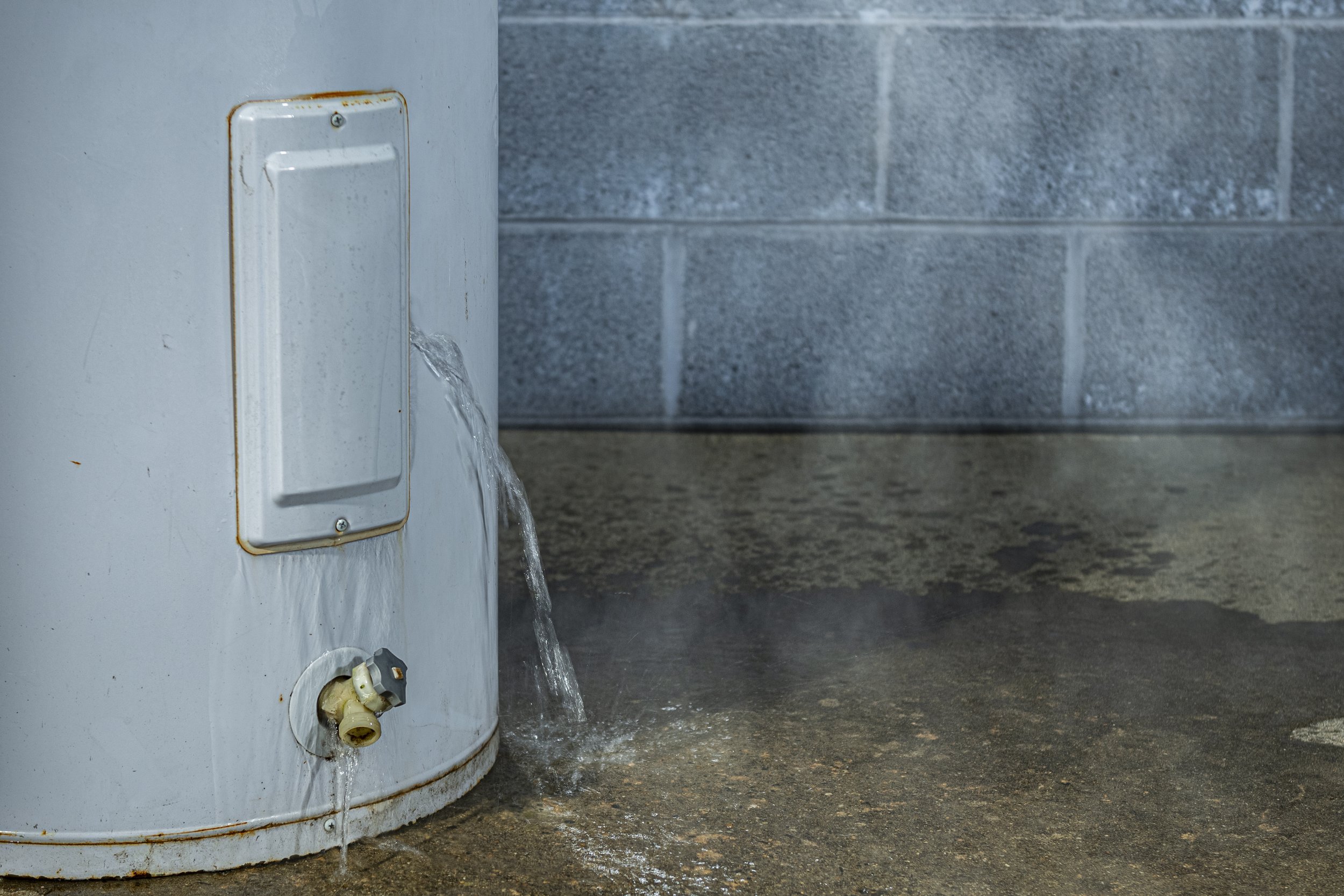What Does It Mean If Your Water Heater Is Leaking?
A leaking water heater is more than just an inconvenience—it’s a signal that something is wrong. Whether it’s a minor issue or a warning of a major problem, understanding the cause and implications of a leak is crucial for maintaining the safety and efficiency of your home. In this blog, we’ll explore the possible reasons for a leaking water heater, the risks it poses, and the steps you can take to address the problem.
Common Causes of a Leaking Water Heater
Loose Connections or Fittings
Over time, the connections and fittings on your water heater can loosen due to vibrations, thermal expansion, or normal wear and tear. If the leak originates from the inlet or outlet pipes, tightening these fittings may resolve the issue.Faulty Temperature and Pressure (T&P) Relief Valve
The T&P valve is a critical safety component that prevents excessive pressure buildup. If the valve is leaking, it could indicate:The water heater is overheating.
There’s excessive pressure inside the tank.
The valve itself is damaged and needs replacement.
Corrosion Inside the Tank
The inner lining of your water heater tank is designed to resist corrosion, but over time, this protective barrier can wear down, especially if the anode rod is depleted. Corrosion leads to small holes in the tank, causing leaks that usually signify the water heater is nearing the end of its lifespan.Cracked or Worn-Out Drain Valve
The drain valve, used for maintenance and flushing the tank, can develop leaks if it becomes damaged or fails to seal properly. While this is often repairable, neglecting it could lead to larger problems.Excessive Sediment Buildup
Over time, minerals in your water can settle at the bottom of the tank, creating sediment buildup. This can cause overheating, which puts stress on the tank and may lead to leaks.
Why a Leaking Water Heater is a Serious Problem
Water Damage to Your Home
Even a small leak can lead to extensive water damage, including warped floors, stained walls, and mold growth. The longer the leak persists, the more costly the repairs.Increased Energy Costs
A leaking water heater must work harder to maintain temperature, leading to higher energy bills.Risk of Complete Failure
If a leaking water heater is left unaddressed, it may eventually rupture, resulting in a sudden and catastrophic flood.
How to Address a Leaking Water Heater
Turn Off the Power Supply
For electric water heaters, switch off the circuit breaker.
For gas water heaters, turn the gas valve to the "off" position.
Shut Off the Water Supply
Locate the cold water inlet valve and turn it off to stop the flow of water into the heater.Inspect the Source of the Leak
Identify where the water is leaking. This will help determine whether the issue can be fixed with minor repairs or if a replacement is necessary.Consult a Professional
If you’re unable to pinpoint the issue or if the problem involves internal components or corrosion, it’s best to call a licensed plumber or HVAC technician. Attempting DIY repairs on complex issues can worsen the situation.
When to Replace Your Water Heater
If the leak stems from internal corrosion or the tank itself, it’s likely time to replace the water heater. Modern water heaters are more energy-efficient and offer advanced features like better insulation and leak detection systems, making them a worthwhile investment.
Preventing Future Leaks
Regular Maintenance
Schedule annual maintenance to flush out sediment, inspect components, and replace the anode rod as needed.Install a Water Softener
If you live in an area with hard water, a water softener can reduce mineral buildup and prolong the life of your water heater.Check the T&P Valve
Test your T&P valve periodically to ensure it’s functioning correctly.Monitor for Signs of Aging
Most water heaters last 8–12 years. If yours is approaching this range, start planning for a replacement to avoid unexpected leaks.
Final Thoughts
A leaking water heater is not an issue to ignore. Whether it’s a minor drip or a steady flow, it’s essential to address the problem promptly to avoid further damage and inconvenience. Regular maintenance, timely repairs, and professional inspections can help extend the life of your water heater and keep your home safe and efficient.
If your water heater is leaking or showing signs of wear, don’t wait—contact a trusted plumber in Cape Coral today for a thorough inspection and peace of mind.

